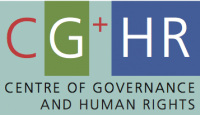
The 2025 Communicator: The Future of Digital Communications and Humanitarian Response
With communication a central element in humanitarian crises and humanitarian response, the next decade will see communicators change their approach in light of the increased significance of digital communications in such situations.
Digital trends include real-time mapping and analysis using social media, crowd sourcing and data mining, the use of mobile phones to disseminate information, online campaigns bringing publics and affected populations closer together, digital platforms for cash transfers and new digital tools for assessment work, as well as monitoring and evaluation. These changes have brought new actors not traditionally associated with humanitarian situations onto the scene: technologists, data analysts, social innovators, private sector businesses and financial intermediaries, among others.Yet to understand the full significance of these trends, we must dig deeper. There is a fundamental change underway in the underlying drivers of humanitarian crisis and of humanitarian response that will become a reality in 2025 if we consider that an essential condition that defines a ‘humanitarian situation’ is a communications crisis. This holds on two critical levels.










